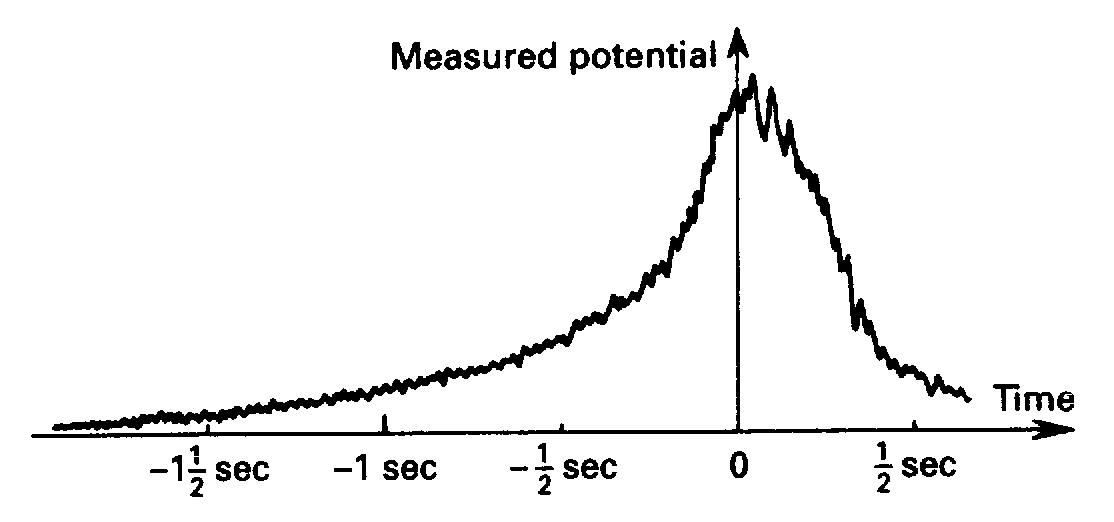

A subject is asked to press a button at a time of his/her own violition. Electrodes detect the brain's activity. | |
Result: There is a clear indication of electrical activity about a full second ahead of the time that the subject believes that the actual decision was made. | |
If free will exists, then it must involve some sort of a time delay of about one second. | |
Or is free will an illusion, the result of the interpreter's storytelling? |
Source: H. H. Kornhuber, "Cerebral Cortex, Cerebellum, and Basal Ganglia: An Introduction to Their Motor Functions," in The Neurosciences, Third Study Program, eds. F. O. Schmitt and F. G. Worden (Cambridge, Mass.: Massachusetts Institute of Technology, 1973), pp. 267-80. Diagram from Penrose, Roger, The Large, the Small, and the Human Mind.